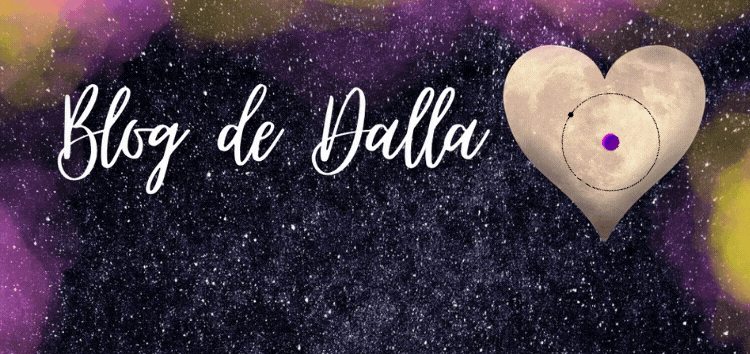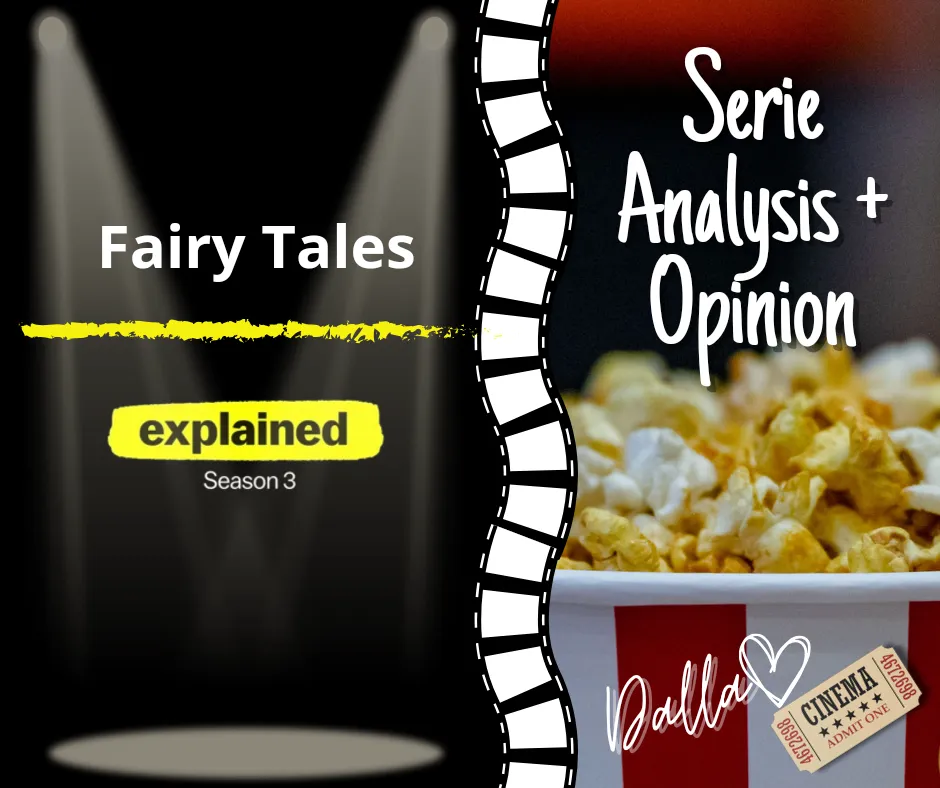

¿Sabías que los cuentos de hadas que conocemos en la actualidad tienen un origen de cientos, hasta miles de años y que en sus orígenes no eran precisamente tan inofensivos como los que vemos hoy en día? ¿No? Entonces sigue leyendo un poco para que aprendas más de los cuentos que conocemos en la actualidad…
Did you know that the fairy tales we know today date back hundreds, even thousands of years and that in their origins they were not exactly as harmless as the ones we see today? No? Then read on to learn more about the fairy tales we know today....


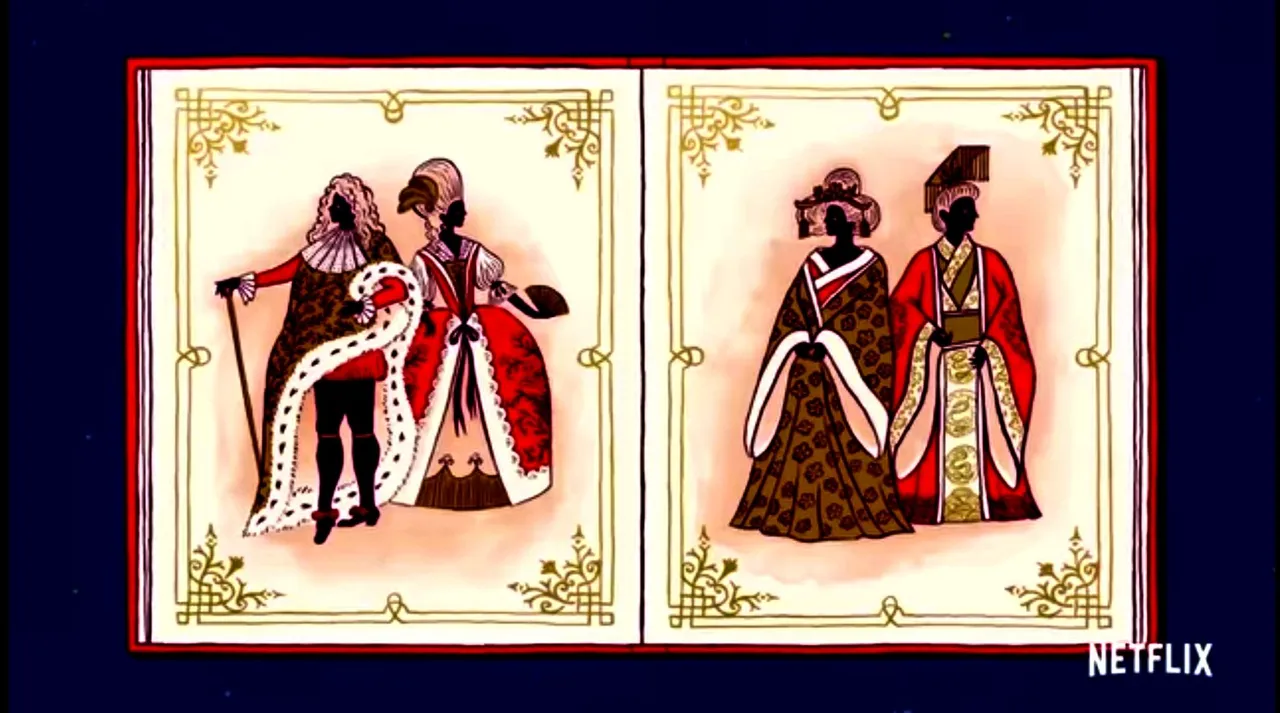

¡Saludos amigos espectadores del cine y la tv! siguiendo con mis post relacionados a la Serie-Documental "En pocas palabras" de la plataforma Netflix, el día de hoy les traigo el capítulo relacionado a "Cuentos de Hadas" de la tercera temporada..
Les cuento que no sabía si hacer una review de este capítulo porque realmente no lo consideraba de Psicoayuda, que es en lo que enfoco estos post, pero en la medida que iba viendo el capítulo me fui dando cuenta de que realmente la cultura popular, nuestras creencias y principios vienen mucho de estos cuentos y por ende si tienen bastante que ver con nuestra Salud Mental.
Y es que, aunque no nos demos cuenta cuando ya somos adultos, realmente mucho de nuestra formación ha estado bastante apoyada por esos cuentos que nos leyeron cuando éramos niños, bien sea en la casa o la escuela, ya que son libros que no solo cuentan una historia sobre princesas, príncipes, brujas o castillos, sino que en la trama vienen entremezclados aprendizajes de vida que son realmente significativos para nosotros cuando somos niños y persisten aun cuando ya llegamos a la adultez.
Básicamente si nos damos cuenta, sí, una parte importante de nuestros principios y valores los aprendemos a partir de ellos, podemos decir que tienen una influencia muy importante en la formación de nuestra consciencia, de hecho, mucho de lo que adquirimos a partir de ellos pasa al inconsciente y permanece ahí en esos procesos a los que no tenemos acceso, pero que en determinados momentos pueden salir a flote y estabilizarnos cuando tenemos algún problema emocional.
Greetings friends movie and tv viewers! following with my posts related to the documentary series "In a nutshell " of the platform Netflix, today I bring you the chapter related to "Fairy Tales " of the third season.
I didn't know if I should review this chapter because I didn't really consider it Psicoayuda, which is what I focus these posts, but as I was watching the chapter I realized that really popular culture, our beliefs and principles come a lot from these stories and therefore if they have a lot to do with our Mental Health.
And it is that, although we do not realize it when we are adults, really much of our formation has been supported by those stories that were read to us when we were children, either at home or at school, since they are books that not only tell a story about princesses, princes, witches or castles, but in the plot are intermingled life lessons that are really significant for us when we are children and persist even when we reach adulthood.
Basically if we realize, yes, an important part of our principles and values we learn from them, we can say that they have a very important influence in the formation of our consciousness, in fact, much of what we acquire from them goes to the unconscious and remains there in those processes to which we do not have access, but that at certain times can emerge and stabilize us when we have an emotional problem.

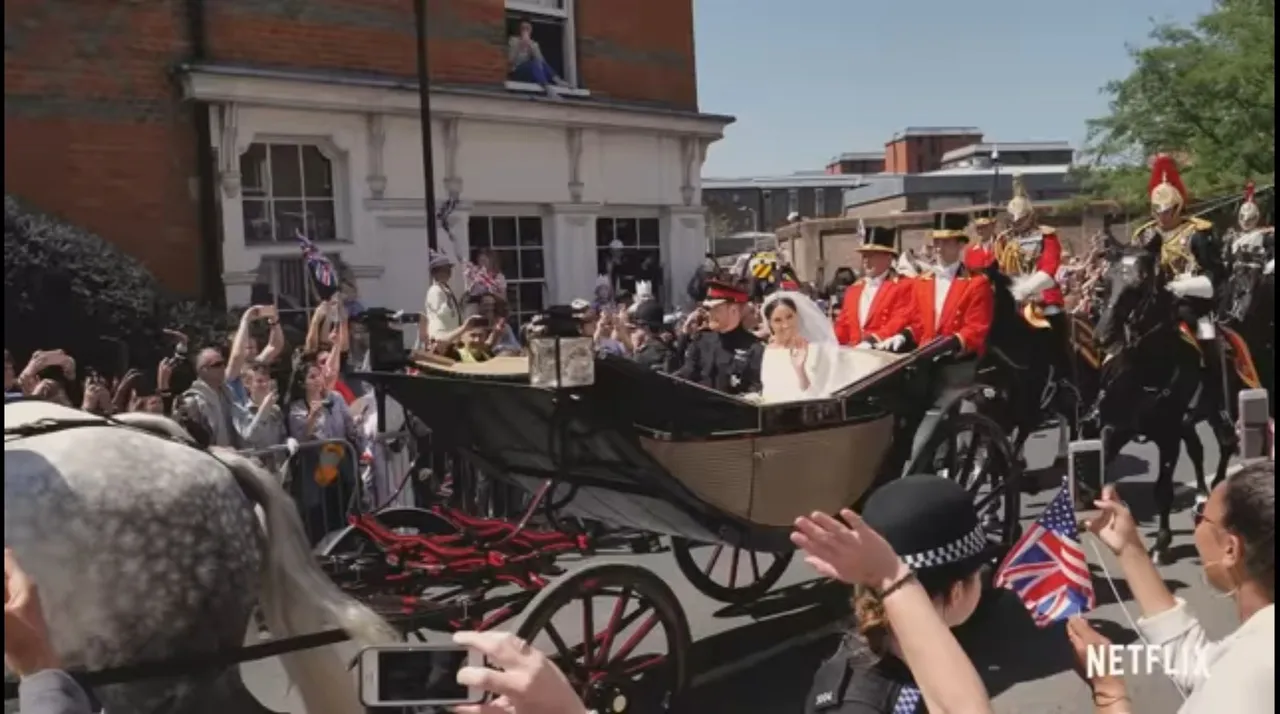

Entre muchas cosas de las que hablan en el capítulo me pareció interesante que se recalca que los cuentos de hadas muchos se han repetido a lo largo de los siglos en culturas bastante distantes tanto geográfica como temporalmente, pero que estuvieron relacionados alguna vez, y que es lo que hace que muchas de las historias contadas tengan similitudes.
Sin embargo, también hacen hincapié en que gran parte de esas historias han sido modificadas culturalmente adaptándose a la época, las costumbres y lo que era bien visto en momentos determinados, ya que estos cuentos, en un principio, no eran precisamente para niños, o por lo menos no contaban con una narrativa que pudiera brindar el mensaje que se quería sin ser tan gráficos, muchas veces hasta el punto de llegar a ser grotescos.
Cada cuento de hadas fue creado con un fin, tiene mensajes que son realmente de los más importantes para la vida, por ello con el tiempo se han vuelto menos detallistas para que no se necesite analizar las cosas con tanta profundidad, sino que el mensaje sea entregado de una forma sencilla y es precisamente esta la razón por la que a muchos en la actualidad no les gustan.
De una u otra forma estos cuentos están y han estado rodeados de algo de crítica, otros los critican porque muchos mantienen una narrativa donde ciertos personajes son tratados despectivamente, relevados o se les dan características a los personajes principales que "no deberían ser" de acuerdo a los estándares sociales actuales, sin enfocarse en que estos surgieron en épocas bastante distintas y, de hecho, es lo que marca el origen de las historias.
Among the many things they talk about in the chapter, I found it interesting that they emphasize that many fairy tales have been repeated over the centuries in cultures that are quite distant both geographically and temporally, but that they were once related, and that is what makes many of the stories told have similarities.
However, they also emphasize that many of these stories have been culturally modified to adapt to the time, customs and what was well seen at certain times, since these stories, at first, were not exactly for children, or at least did not have a narrative that could provide the message that was wanted without being so graphic, often to the point of being grotesque.
Each fairy tale was created with a purpose, it has messages that are really the most important for life, so over time they have become less detailed so that you do not need to analyze things so deeply, but the message is delivered in a simple way and this is precisely the reason why many today do not like them.
In one way or another these stories are and have been surrounded by some criticism, others criticize them because many maintain a narrative where certain characters are treated disparagingly, relieved or are given characteristics to the main characters that "should not be" according to current social standards, without focusing on the fact that these arose in quite different times and, in fact, is what marks the origin of the stories.

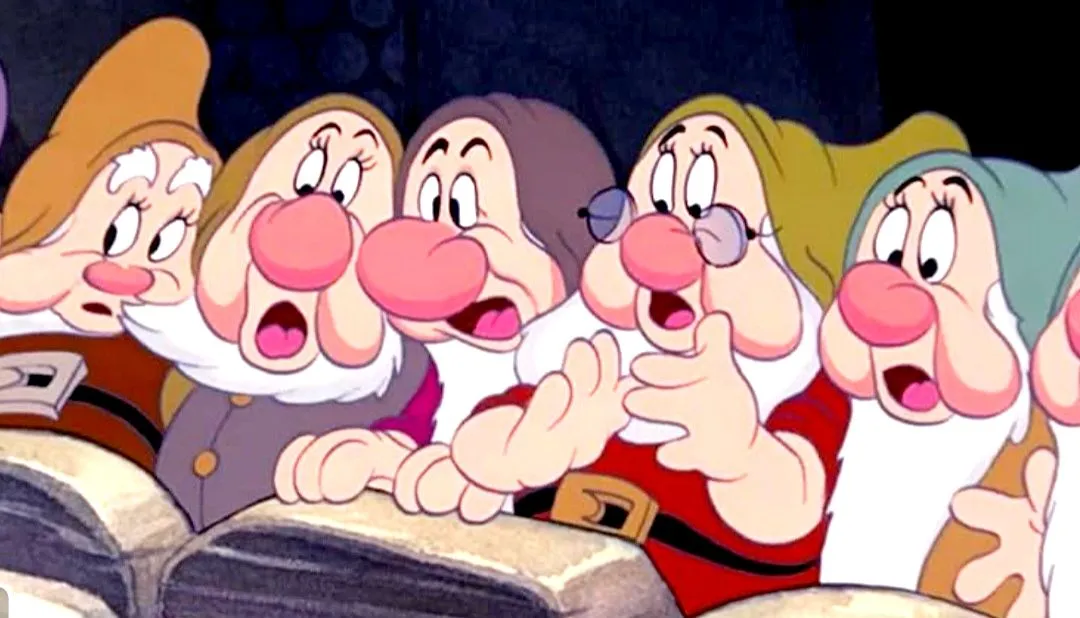

Me gusto que el documental es bastante objetivo y hace una crítica abierta a la industria cinematográfica, ya que establecen que, de cierta, se adueñaron de estas historias que formaban parte de la cultura popular de muchos países del mundo y modificaron mucho la narrativa, lo que en sí les quita mucho de su esencia y, además, en vista a que son medios masivos, hacen que el cuento sea inmortalizado y masificado de esa forma, olvidándose los orígenes reales y las modificaciones que poseen por cada región.
No todo lo que cuentan es negativo, se hace énfasis en que esta industria además ha permitido crear nuevas historias con mensajes igual de profundos y que han hecho que historias que pertenecían a culturas muy pequeñas hayan podido ser expandidas al resto del mundo y se hayan dado a conocer a muchísimas personas alrededor del mundo.
Por supuesto el documental se enfoca en la importancia de estos cuentos y lo que han formado en el inconsciente colectivo, ya que muchos niños a tempranas edades saben sobre modales, buenas costumbres y aprenden sus principios en gran medida gracias a muchos de estos cuentos que son leídos, algunas veces, diariamente antes de dormir.
Así que finalmente todo se enmarca en resaltar que, aun cuando son historias creadas y, tal vez, no ocurrieron en la realidad (al menos no como se narran) representan un gran legados para la humanidad, se incentiva a que se sigan creando, que se conozca que tienen orígenes variados, que en realidad cambiarlos y hacerlos, por ejemplo más feministas, solo estará cambiando parte de la esencia de la historia, y que no se debería hacer porque al final solo tendremos personajes superfluos en los que el mensaje será tan extremadamente sencillo, que con el tiempo básicamente no valdrá la pena transmitirlo.
El documental habla sobre un sin fin de cosas más, dan muchos ejemplos con clásicos de Disney, hablan de la industria cinematográfica y de lo que representan estas historias para las diferentes culturas que les dieron su origen, así que si eres una persona que disfruta de estos clásicos y te gustaría saber que hay detrás de ellos ¡créeme te gustará este capítulo!
I like that the documentary is quite objective and makes an open criticism to the film industry, since it establishes that, to a certain extent, they took possession of these stories that were part of the popular culture of many countries in the world and modified the narrative, which in itself takes away much of its essence and, in addition, since they are mass media, they make the story to be immortalized and massified in that way, forgetting the real origins and the modifications that they have for each region.
Not everything they tell is negative, it is emphasized that this industry has also allowed the creation of new stories with equally profound messages that have made stories that belonged to very small cultures to be expanded to the rest of the world and have become known to many people around the world.
Of course, the documentary focuses on the importance of these stories and what they have formed in the collective unconscious, since many children at an early age know about manners, good manners and learn their principles largely thanks to many of these stories that are read, sometimes, daily before bedtime.
So finally everything is framed in highlighting that, even when they are created stories and, perhaps, did not happen in reality (at least not as they are narrated) they represent a great legacy for humanity, it is encouraged to continue creating them, to know that they have varied origins, that in reality changing them and making them, for example, more feminist, will only be changing part of the essence of the story, and that it should not be done because in the end we will only have superfluous characters in which the message will be so extremely simple, that in time it will basically not be worth transmitting.
The documentary talks about many other things, they give many examples with Disney classics, they talk about the film industry and what these stories represent for the different cultures that gave them their origin, so if you are a person who enjoys these classics and you would like to know what is behind them, believe me you will like this chapter!
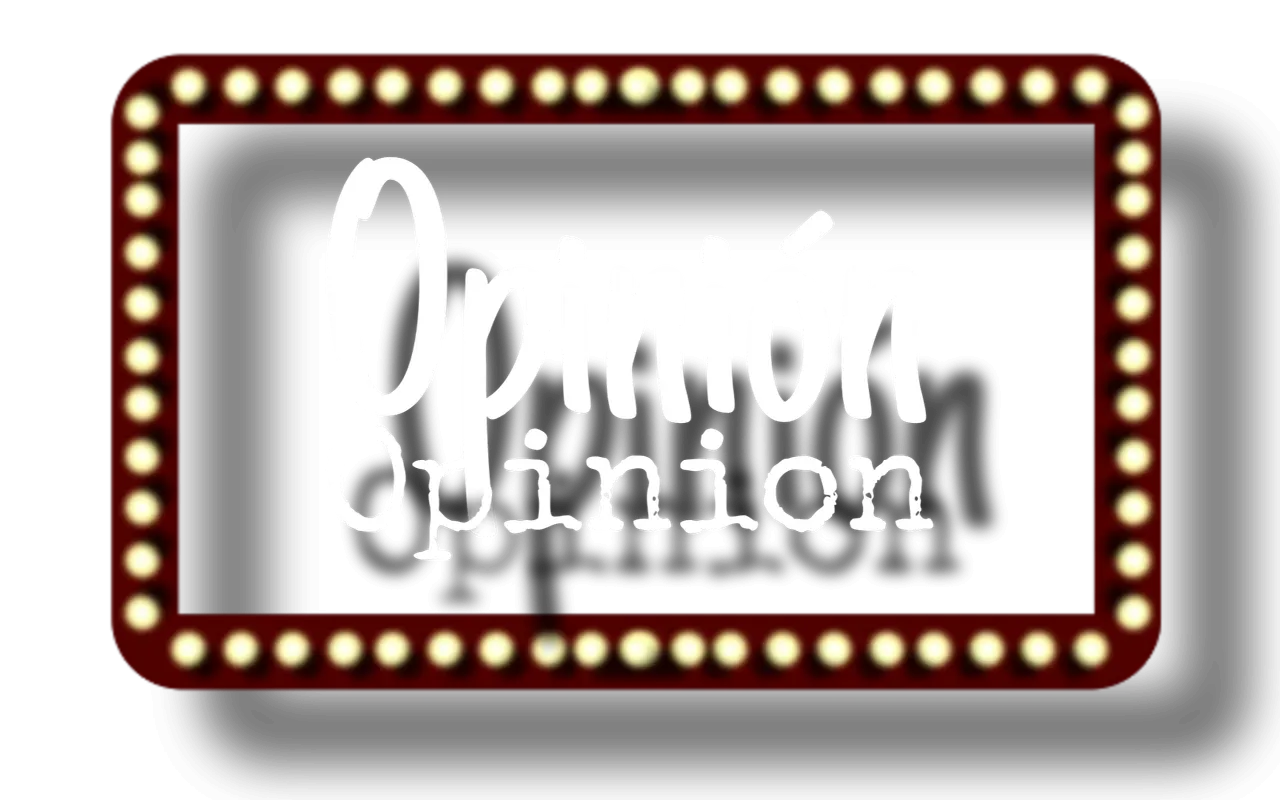
¿Te gustó el capítulo? Me gustó, no pensé que lo haría, pero se volvió bastante interesante en la medida en que se iba desarrollando la trama.
¿Lo volvería a ver? Sí, definitivamente hay muchísimos detalles que analizar y mucha información que procesar.
Lo recomendaría Sí, totalmente la mayoría de las mujeres que conozco les gustan los clásicos de cuentos de hadas y tengo una lista de varios hombres a los que sé que, al menos, una película de este tipo les agrada, por lo que estoy casi segura de que les gustará el capítulo documental, así como espero que a ustedes también.
Did you like the chapter? I liked it, I didn't think I would, but it became quite interesting as the plot developed.
Would I watch it again? Yes, there are definitely a lot of details to analyze and a lot of information to process.
Would I recommend it Yes, totally most of the women I know like fairy tale classics and I have a list of several men who I know at least one such movie appeals to them, so I'm pretty sure you'll like the documentary chapter, as well as I hope you will too.


